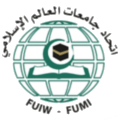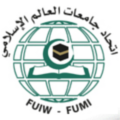On 27 March 2017, an international workshop kicked off to discuss the project dubbed “Encyclopedia of Occidentalism: An introduction to understanding the other, at the headquarters of the Islamic Educational, Scientific and Cultural Organization (ISESCO) in Rabat. The event was held as part of ISESCO Chair in Alliance of Civilizations, by the Federation of the Universities of the Islamic World (FUIW), in cooperation with the College of Sharia and Islamic Studies at Qatar University.
The opening ceremony was marked by the addresses delivered by Dr Amina Al-Hajri, ISESCO Deputy Director General; Dr Yusuf Al-Siddiqui, Dean of the College of Sharia and Islamic Studies at Qatar University; and Dr Buthaina Abdullah Abdul Ghani, Chairperson of the Board of Directors of Abdulla Abd Al-Ghani for Civilized Communication.
This workshop aimed to discuss ways to produce the first comprehensive encyclopedia that addresses the scientific, intellectual and political mutations throughout the different stages of the European civilization’s history and seeks to provide an understanding of the West’s culture and ideology using objective scientific methods, following the footsteps of Orientalist studies on the Islamic civilization and Muslims.
The Encyclopedia project intends to establish an objective scientific foundation to understanding the West and lay the bases for a new discipline parallel to that of Orientalism that addresses the stereotypes about civilizations. It also aims to promote dialogue among cultures and civilizations, foster religious coexistence, and encourage comparative studies dealing with Orientalism and Occidentalism using objective approaches that would contribute to the promotion of understanding and civilizational coexistence. In the same vein, the encyclopedia seeks to provide researchers with advanced knowledge, intellectual and civilizational mechanisms for promoting dialogue and addressing fanaticism, and religious and cultural extremism; highlight the best practices in tolerance, middle stance and coexistence; and monitor the impact of encyclopedic studies on establishing a comprehensive understanding of the Other.
The workshop brought together scholars, intellectuals and experts in research, encyclopedic and lexicographical works on Islamic thought, western thought, Orientalism, religions and social and human sciences. The workshop also benefited 20 student researchers accompanied by a number of professors supervising the religious communication and dialogue of civilization Master’s Program at the Faculty of Letters and Humanities, in Chouaib Doukkali University, El Jadida, Morocco.
Comments are closed.


